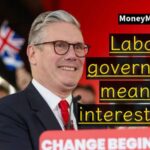In this article we are going to discuss what does Labour government mean for the economy and how it will impact you.
Labour government
The Labour Party has gained control of 10 Downing Street and the House of Commons for the first time since 2010, with Sir Keir Starmer as the new Prime Minister of the UK.
Let’s find what a Labour government means for your finances and how you can get ready. Predictably, given their campaign focused on change, there are many upcoming developments.
Taxes Will Rise
Labour does not plan to address the freeze on income tax thresholds, which is set until April 2028. This freeze has already resulted in 4.4 million more people paying income tax, including nearly 2 million individuals over the state pension age.
Over the next four years, this will significantly impact taxpayers and we will see how Labour Government would handle this.
During the campaign, Labour pledged to reform welfare to combat poverty. However, the party has not promised to end the two-child policy, which restricts benefits to the first two children in a family, despite its significant impact on child poverty.
Improved Workplace Rights
Labour aims to increase workforce participation and make workplace changes to reduce the need for state support among working people. A key part of their agenda is to ensure better rights and conditions for workers.
Minimum Wage Increase
Labour plans to ensure that the minimum wage reflects the cost of living. They will also eliminate age bands, so all adults receive the same hourly minimum wage.
Improved Renters’ Rights
Labour has promised to end no-fault evictions, allow tenants to challenge unreasonable rent increases, and raise rental standards. However, raising standards may increase costs for landlords, potentially resulting in higher rents for tenants.
Decline in Savings Rates
Competitive savings rates, currently above 5%, are likely to fall as the Bank of England is expected to cut interest rates by August or September.
Gradual Decline in Mortgage Rates
Mortgage rates, influenced by interest rates and bond market conditions, are expected to decrease slowly. Labour’s emphasis on fiscal responsibility and a fully-costed manifesto should prevent market instability, contributing to a gradual decline in both variable and fixed-rate mortgage rates.
Increase in Stamp Duty
The mini-budget of September 2022 reduced stamp duty, but Jeremy Hunt extended this as a holiday until March 2025.
Potential Long-term Fall in Property Prices
Labour intends to increase home ownership by building more houses. The effect on property prices will depend on the success of these plans.
VAT on Private School Fees
Labour plans to impose VAT on private school fees, posing a financial challenge for those already facing rising fees. Be cautious of schemes claiming to circumvent VAT, as they are likely to be targeted by new regulations.
Possible Increase in Taxes on Savings and Investments
Although Labour has not made specific commitments regarding capital gains tax, dividend tax, or the personal savings allowance, there is speculation that any of these could see increases.
Impact on Capital Gains and Dividend Taxes
Capital gains tax and dividend tax rates are tied to your marginal tax rate. If the freeze on income tax thresholds has pushed you into a higher tax bracket, you will pay more in these areas as well.
The same principle applies to savings, with the added complication that the allowance decreases once you cross certain thresholds. Therefore, anyone expecting interest from savings or income from investments should consider using an ISA to shield themselves from additional taxes.
State Pension Triple Lock Retained
The triple lock will remain, ensuring predictable increases in the state pension. However, balancing this with rising costs may require adjustments, such as accelerating the increase in the state pension age.
Potential Changes to Pensions Tax Relief
Pensions tax relief might be adjusted, with Labour previously suggesting a flat rate. This would benefit basic rate taxpayers but reduce relief for higher and additional rate taxpayers.
National Insurance Contributions
Labour backed the Conservatives’ cuts to National Insurance in the 2024 Spring Budget, and their manifesto promises not to increase current rates. However, with tax rates frozen until 2028, Labour may still rely on fiscal drag.
Notably, while the Conservatives have pledged to eliminate the main rate of National Insurance for the self-employed by 2029, there is no indication that Labour will adopt this policy.





